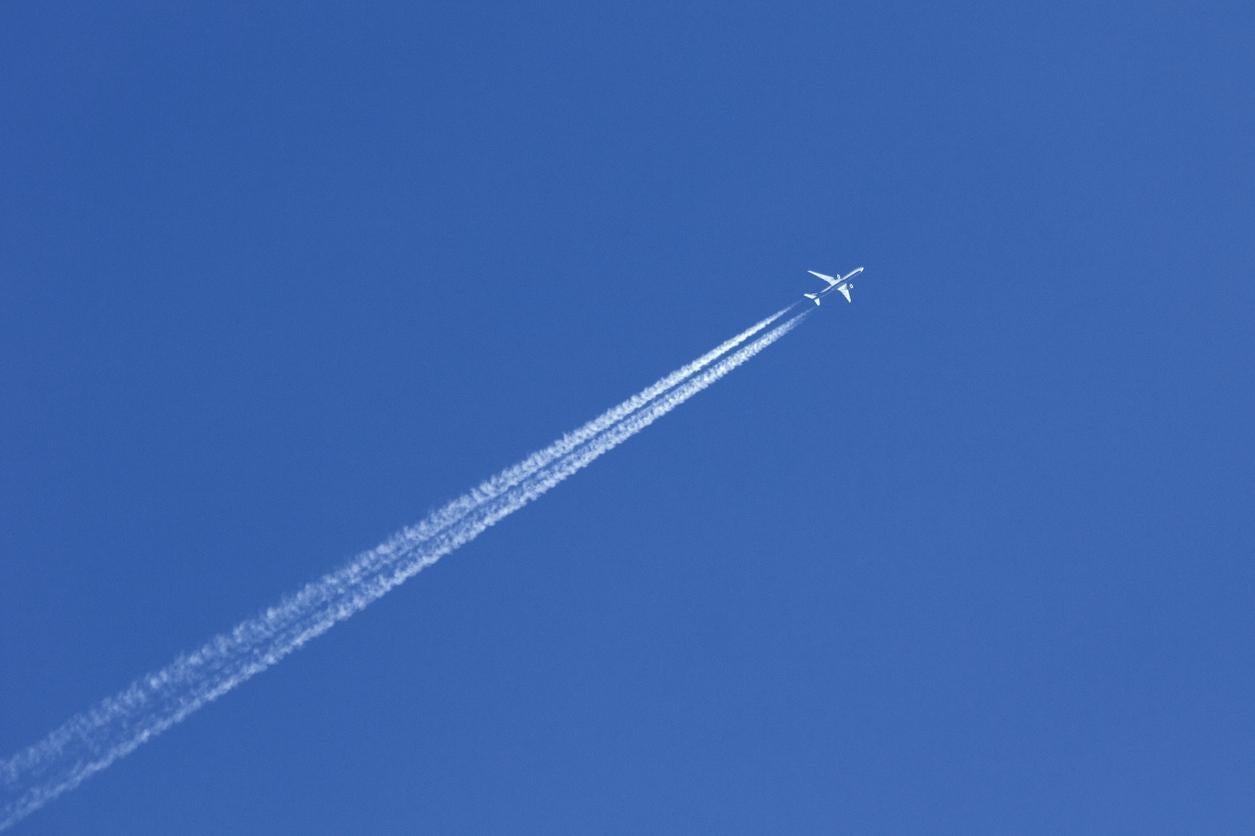Why slashing tax on domestic flights sends a disastrous message about the climate
No government which cares about cutting emissions would further subsidise the most polluting form of transport, writes Alethea Warrington, campaigner at climate charity Possible

With the UK hosting the world’s most important climate summit next week, the Prime Minister has never been keener to grab “climate leader” status. Yet the policies set out today in Rishi Sunak’s Budget make it clear that, despite the government’s warm words on tackling the climate crisis, they’re still pushing for expansion of the high-carbon options which we should be taking urgent action to phase out.
The government’s plan to halve air passenger duty (APD) on domestic flights is utterly incompatible with the clean, safe climate we need. And if we want a “better-connected UK”, then for short-haul journeys we should be investing in existing, viable, low-carbon road, rail and ferry options – all of which offer much more scope for reducing emissions than kerosene-guzzling planes – to ensure that they are affordable and accessible.
APD is a tax on passenger flights from UK airports, and it’s estimated to reduce demand for flights by around 10 per cent. While introduced initially purely to raise money, it does have an environmental impact, and without it emissions from domestic flights would increase.
Air travel, which is the most polluting form of transport, already receives generous tax breaks from the UK taxpayer which amounted to £7bn per year pre-Covid. Plane tickets are zero-rated for VAT, along with basic essentials, and international tickets are also exempt from fuel tax – unlike motorists filling up at the pump to get to work due to the lack of other travel options.
It just doesn’t make sense to encourage plane travel for domestic journeys for which there is a viable, low-carbon alternative
No government which cares about protecting the climate or ordinary people’s quality of life would take already scarce resources away from essential low-carbon transport across the UK, in order to further subsidise the most polluting form of transport. It just doesn’t make sense to encourage plane travel for domestic journeys for which there is a viable, low-carbon alternative. While increasing APD on longer journeys is a step in the right direction, the size of the increase is derisory given the emissions involved – just a few pounds extra.
Instead of incentivising air travel, a service which around half of the UK population doesn’t even use once each year, the government should get on with making a much more urgent improvement to people’s quality of life and mobility – investing in electric, affordable and more frequent bus, train and even ferry services that would allow people to keep travelling while also protecting the climate. A survey just this year found that rail travel is 49 per cent more expensive than air travel for the same routes; a situation that’s clearly ridiculous, given that the same journey by plane produces around 10 times more emissions. If we’re going to combat the climate crisis, we need to get serious about making it easier and cheaper for people to make the choice that protects the climate.
Connectivity between the different nations of the UK is important, but routes to remote areas of the Scottish highlands are already exempt from APD. The most popular domestic air route is London to Edinburgh, for which there are multiple rail options available - including an all-new operator called Lumo, offering tickets for as low as £20 and running entirely on electricity.
Instead of tiny increases to taxes on the longest and most polluting flights, what’s needed is a complete reform of aviation tax
Instead of tiny increases to taxes on the longest and most polluting flights, what’s needed is a complete reform of aviation tax to discourage the small minority who take most of the flights. Globally, just 1 per cent of the population takes half of all the flights, while in the UK just 15 per cent – a small group of frequent flyers – takes 70 per cent of all the flights. This means that a progressive tax system, in which an increasingly high charge is placed on each flight someone takes per year, could greatly reduce flights and the harm aviation emissions cause to the climate – without putting higher charges on the 70 per cent of people in the UK who fly once per year or less.
Bringing in a Frequent Flyer Levy would be good for the climate and good for ordinary people, raising billions in revenue which could be invested in low-carbon alternatives to flying. It’s no wonder that it’s also popular, with the government’s own polling finding that a majority of the UK public are in favour of a frequent flyer levy, with fewer than one in five people opposed. Yet the government refuses to listen, instead pushing ahead with tax breaks that would increase emissions, noise and pollution from travel within the UK.
Instead of more tax breaks for polluting air travel, what’s needed now is robust support for UK transport connectivity, stopping us from needlessly polluting our skies when we could instead invest in the efficient, affordable, green travel system the UK urgently needs.
Possible is a UK charity that brings people together to help tackle the climate crisis.
Join our commenting forum
Join thought-provoking conversations, follow other Independent readers and see their replies
Comments